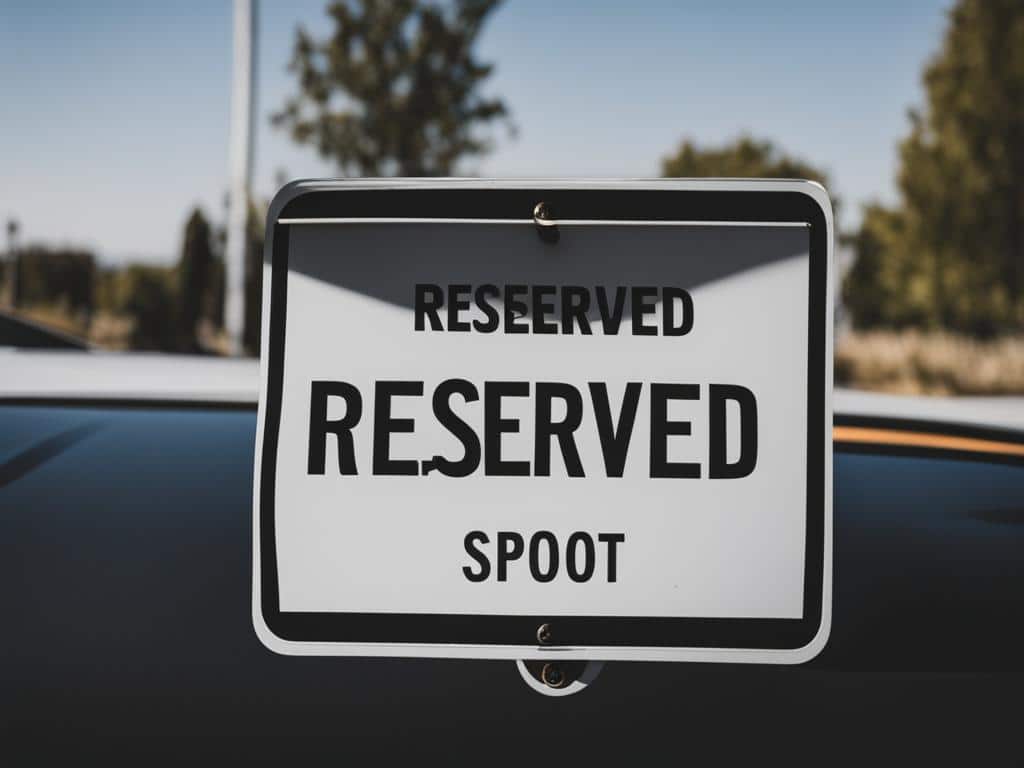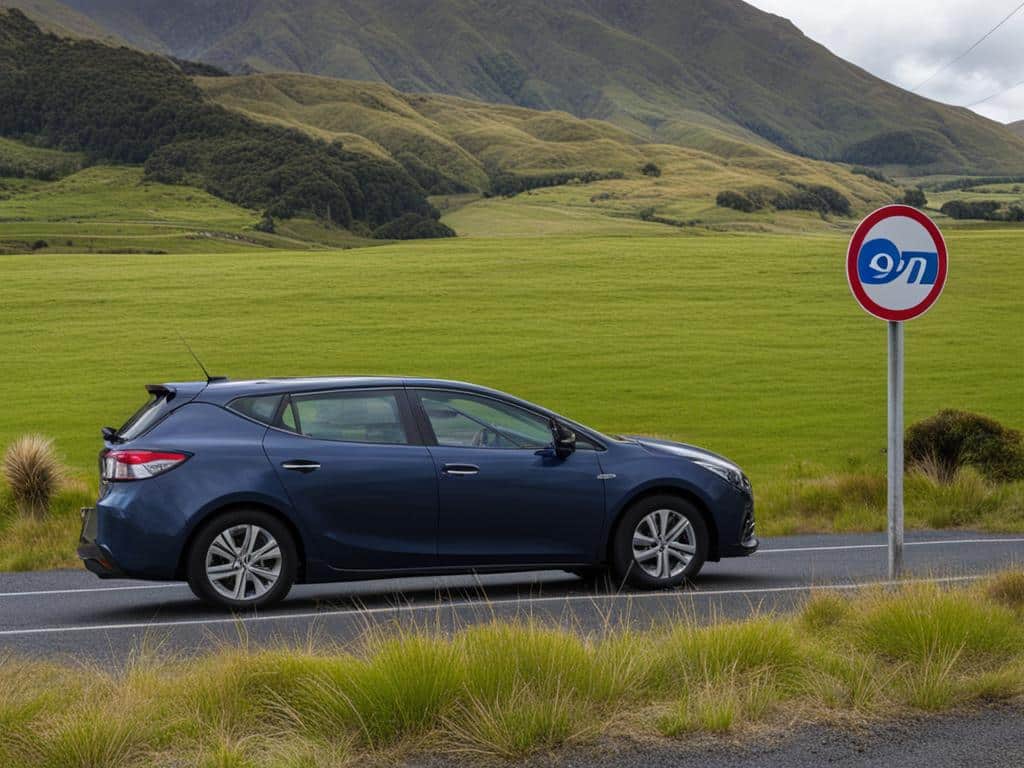When it comes to putting your car on hold in New Zealand, it’s important to understand the process and responsibilities involved. Whether you’re planning on temporarily storing your vehicle or purchasing a new one, there are specific steps you need to take to ensure everything is done legally and correctly.
In this guide, I’ll walk you through the process of putting a car on hold in NZ, whether you’re a new buyer or a current owner looking for temporary storage options. We’ll cover the steps you need to take, your responsibilities as the registered person, and important tips and advice to keep in mind.
Key Takeaways:
- Putting your car on hold in NZ is a legal requirement if you’re not planning to use it on the road for at least 3 months.
- Notify the authorities immediately after purchasing a vehicle to ensure you’re recognized as the registered person.
- Before buying a vehicle, do thorough checks to protect yourself, such as checking the vehicle’s safety record and any known issues.
- As the registered person, it’s your responsibility to ensure the vehicle meets all necessary requirements and has a current license.
- Take precautions to keep yourself and your possessions safe in NZ by avoiding unlit areas and not carrying valuable items with you.
How to Put a Car on Hold in NZ
If you have a car in New Zealand that you won’t be using on the road for at least three months, you can apply for an exemption to put your vehicle license on hold. This allows you to avoid paying licensing fees during the period of inactivity. To initiate the process, you first need to notify the authorities that you have purchased the vehicle. Once you have done this, you can proceed with applying for the exemption.
Putting a car on hold involves following the proper process and meeting certain requirements. You will need to provide information such as the vehicle’s registration number, your contact details, and the reason for putting the car on hold. It is important to provide accurate and complete information to ensure a smooth application process. You may also need to provide supporting documents, such as proof of purchase or confirmation of non-road use from an insurance provider.
Once your application for putting the car on hold is approved, you will receive a confirmation along with the duration of the hold period. During this time, it is important to note that you cannot use the vehicle on the road. It is also your responsibility to ensure that the vehicle remains off the road and properly stored. Failing to comply with the conditions of the hold period may result in penalties or the revocation of the exemption.
| Benefits of Putting a Car on Hold | Considerations |
|---|---|
|
|
Putting a car on hold in New Zealand is a convenient option when you have a vehicle that won’t be in use for an extended period. By following the proper process and meeting the requirements, you can ensure that your car is legally off the road and avoid unnecessary licensing fees. Remember to comply with the conditions of the hold period to avoid penalties or the revocation of the exemption.
Responsibilities as the Registered Person
When you become the registered person for a vehicle in New Zealand, you take on certain responsibilities. These responsibilities ensure that the vehicle meets all necessary requirements and remains in compliance with the law.
As the registered person, it is your responsibility to ensure that the vehicle has a current license (rego), warrant of fitness (WoF) or certificate of fitness (CoF), and road user charges (RUC) if applicable. These documents demonstrate that the vehicle is safe to be on the road and meets the necessary standards.
Additionally, it is crucial to be aware of any security interests on the vehicle. This includes checking if there are any finance owing or other encumbrances that could affect your ownership of the vehicle. It is important to resolve any security interests before or during your ownership of the vehicle.
By fulfilling these responsibilities as the registered person, you contribute to the overall safety and legality of the vehicle on the road. It is essential to stay informed about the requirements and to take the necessary steps to ensure compliance.
Table: Responsibilities as the Registered Person
| Responsibility | Description |
|---|---|
| Current License (Rego) | Ensure the vehicle has a valid license (registration) to legally operate on the road. |
| Warrant of Fitness (WoF) or Certificate of Fitness (CoF) | Ensure the vehicle has a valid WoF or CoF to demonstrate its safety and roadworthiness. |
| Road User Charges (RUC) | If applicable, pay the necessary road user charges for the vehicle. |
| Check for Security Interests | Ensure there are no security interests, such as finance owing, on the vehicle. |
By fulfilling these responsibilities as the registered person, you contribute to the overall safety and legality of the vehicle on the road. It is essential to stay informed about the requirements and to take the necessary steps to ensure compliance.
Buying a Vehicle in NZ – Tips and Advice
When it comes to buying a vehicle in New Zealand, it’s important to do your due diligence and take certain precautions to ensure a smooth and secure process. Here are some tips and advice to help you make an informed decision:
1. Check the vehicle’s history
Before finalizing your purchase, make sure to check the vehicle’s safety record, fuel efficiency, and any known safety issues or recalls. This information can give you valuable insights into the overall condition of the vehicle and help you avoid potential issues down the line.
2. Verify the registration status and license expiry date
Ensuring that the vehicle’s registration is up to date is crucial. Check the license expiry date to avoid any surprises and additional costs. Additionally, find out if road user charges apply to the vehicle and factor that into your decision-making process.
3. Confirm the vehicle’s identification and security interests
Verifying the vehicle’s identification number (VIN) and plate number is essential to ensure that the vehicle you’re purchasing matches the information provided. It’s also important to check if there are any security interests, such as finance owing, on the vehicle. This step can help you avoid future legal complications.
| Tip | Description |
|---|---|
| 1 | Check the vehicle’s safety record, fuel efficiency, and known issues. |
| 2 | Confirm the registration status, license expiry date, and road user charges. |
| 3 | Verify the vehicle’s identification and check for any security interests. |
“Before buying a vehicle, it is important to do thorough research and checks to protect yourself and ensure a smooth buying process.”
By following these tips and taking the necessary precautions, you can minimize the risks associated with buying a vehicle and make an informed decision. Remember, it’s always better to be well-informed and cautious to avoid any potential issues in the future.
Keeping Yourself and Your Possessions Safe in NZ
When visiting New Zealand, it’s important to prioritize your safety and the security of your belongings. By taking certain precautions, you can minimize the risk of incidents and enjoy your time in this beautiful country without any worries.
Personal Safety Tips
- Avoid walking alone late at night, especially in areas that are poorly lit or unfamiliar to you.
- Do not carry large amounts of cash or valuable items with you. Instead, consider using a secure money belt or keeping your valuables locked in a hotel safe.
- Be cautious when using ATMs and avoid accepting drinks from strangers.
Vehicle Safety Tips
When it comes to vehicles, whether you’re renting a car or traveling in your own vehicle, there are a few measures you should take to ensure your safety:
- Always lock your accommodation or vehicle and keep windows secure.
- Do not leave valuable items visible in parked cars or campervans. Instead, store them in the trunk or a secure compartment.
- If available, use safes provided by hotels or accommodations to store your valuables.
By following these safety tips, you can have a worry-free experience while exploring New Zealand and keep yourself and your possessions safe.

Quote: “Safety should never be taken for granted. It’s our responsibility to protect ourselves and our belongings while traveling.” – Unknown
Road Safety in NZ – Tips and Advice
When driving in New Zealand, it is crucial to prioritize road safety to ensure a smooth and secure experience. Here are some essential tips and advice to keep in mind:
1. Follow the Rules of the Road
Always drive on the left-hand side of the road, obey posted speed limits, and use safety belts. It is also important to refrain from using mobile phones while driving, unless for emergency calls. By following these basic rules, you can contribute to safer roads and reduce the risk of accidents.
2. Avoid Driving Under the Influence
Never drive under the influence of alcohol or drugs. Doing so impairs your judgment and increases the likelihood of accidents. If you plan on drinking, make alternative arrangements for transportation, such as using a designated driver or a ride-sharing service.
3. Take Regular Breaks on Long Road Trips
When embarking on long road trips, it is important to take regular breaks to rest and refresh yourself. Fatigue can impair your ability to drive safely and increase the risk of accidents. Plan your journey in advance and schedule breaks to ensure you stay alert and focused throughout the trip.
By following these road safety tips, you can enjoy your time on the road in New Zealand and help create a safer environment for all travelers.
Tips and Advice for Road Safety in NZ:
- Follow the rules of the road: drive on the left-hand side, obey speed limits, and use safety belts.
- Avoid driving under the influence of alcohol or drugs.
- Take regular breaks on long road trips to prevent fatigue.
Conclusion
Putting a car on hold in New Zealand is a straightforward process that ensures your vehicle is legally off the road when not in use. By following the proper steps and notifying the authorities, you can avoid paying licensing fees during periods of inactivity. It’s important to remember that as the registered person, you have certain responsibilities to fulfill, such as maintaining the necessary licenses, warrants of fitness, and road user charges.
Additionally, it’s crucial to prioritize safety and security while in New Zealand. Taking precautions to keep yourself and your possessions safe, such as not walking alone late at night and securing your accommodation or vehicle, can help prevent unfortunate incidents. By staying informed about road safety regulations and adhering to them, you can contribute to a safer driving experience for yourself and others.
Overall, by understanding the process of putting a car on hold, fulfilling your responsibilities as the registered person, and adopting safety measures, you can have a smooth and secure experience while holding a car in New Zealand.
FAQ
What is the process to put a car on hold in NZ?
To put a car on hold in NZ, you need to notify the authorities that you have bought the vehicle and become the registered person. You can do this by either putting the vehicle into your name online or completing the Change of registered person – buyer (MR13B) form at an agent. After notifying the authorities, you can apply for an exemption to put your vehicle license on hold if you are not planning to use the vehicle on the road for at least 3 months.
What are my responsibilities as the registered person?
As the registered person, you are responsible for ensuring that the vehicle meets all necessary requirements. This includes having a current license (rego), warrant of fitness (WoF) or certificate of fitness (CoF), and road user charges (RUC) if applicable. It is also your responsibility to ensure that there are no security interests, such as finance owing, on the vehicle.
What should I do before buying a vehicle in NZ?
Before buying a vehicle in NZ, it is important to do thorough checks to protect yourself. This includes checking the vehicle’s safety record, fuel efficiency, and any known safety issues or recalls. It is also recommended to check the vehicle’s registration status, license expiry date, and whether road user charges apply. Verifying the vehicle’s identification number (VIN) and plate number and checking for any security interests on the vehicle are essential steps in the buying process.
How can I keep myself and my possessions safe in NZ?
To keep yourself and your possessions safe in NZ, it is important to take precautions. This includes not walking alone late at night, avoiding unlit areas, and not carrying large amounts of cash or valuable items with you. Be aware of your surroundings when using ATMs and avoid accepting drinks from strangers. When it comes to vehicles, always lock your accommodation or vehicle and keep windows secure. Do not leave valuables visible in parked cars or campervans and use safes when available.
What are some road safety tips for driving in NZ?
When driving in NZ, it is important to follow the rules of the road and prioritize safety. This includes driving on the left-hand side of the road, keeping within posted speed limits, wearing safety belts, and not using mobile phones while driving unless for emergency calls. Avoid driving under the influence of alcohol or drugs and rest before embarking on long road trips. When participating in outdoor activities, such as hiking and boating, plan ahead, know your limits, and carry appropriate safety equipment.




